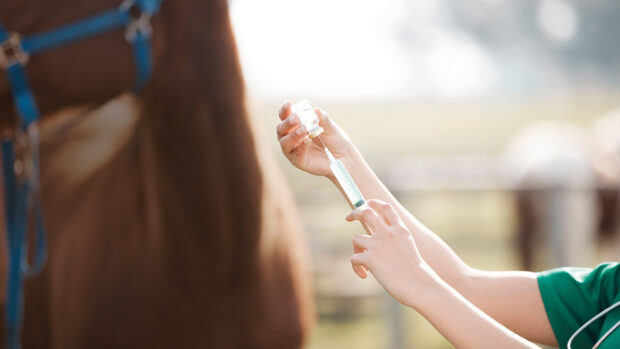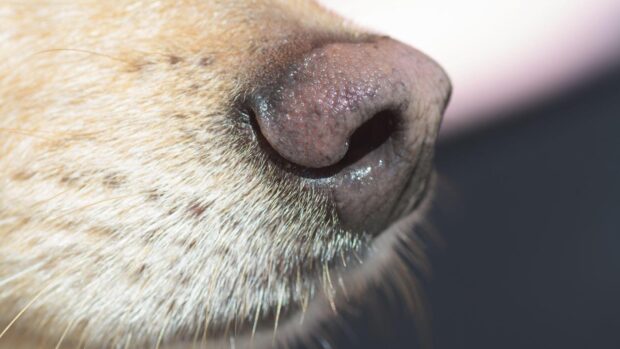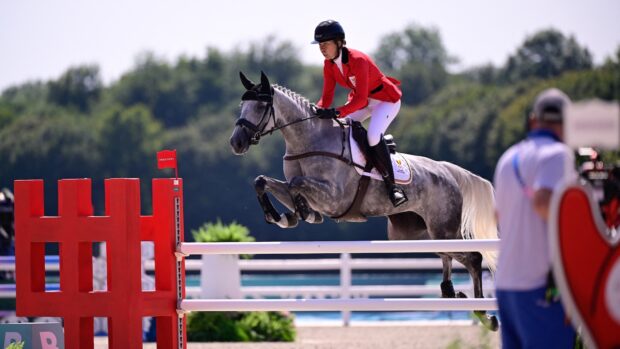British racing is testing thoroughbreds for gene doping after investing almost £2m into ground-breaking research – and the FEI has also enhanced its rules in this area.
The British Horseracing Authority (BHA) announced on 25 March that testing will be “incorporated immediately” into its routine raceday and out-of-competition sampling. The FEI’s strengthened rules on gene doping came into force on 1 April. This involved explicitly defining genetic therapy, gene editing and genome editing, and adding these to the FEI’s prohibited substances list.
“These regulations allow the FEI to conduct testing for gene doping. FEI-accredited laboratories have the necessary capacity to carry out such testing,” an FEI spokesperson told H&H.
Gene doping is the genetic or cellular manipulation of DNA, either directly by gene-editing techniques, or by adding genetic material into the cell by gene transfer, for the purpose of improving performance. In a presentation at the 2024 FEI Sports Forum, FEI senior veterinary adviser Caterina Termine said genetic manipulation could be applied to embryos, youngstock and adult horses.
There are concerns over potential unintended consequences of genetic manipulation that could lead to health and welfare issues. There is also an integrity risk if an animal were to be gene-doped in such a way that improved performance – for example, through increased muscle mass and oxygen-carrying capability – and/or post-exercise recovery.
It is already banned by both the BHA and FEI – and neither have had any recorded cases of gene doping – so these moves are to protect welfare and sporting integrity over emerging risk. There are examples of gene editing for performance purposes in ponies bred for polo in Argentina.
“Testing for gene doping is a significant step forward for British racing and reinforces our commitment to safeguarding the welfare of our horses, protecting the thoroughbred breed and integrity of our competition,” said Brant Dunshea, the BHA’s acting chief executive officer.
“While there are international examples of the use of genetic manipulation in other equestrian activities, there is no evidence to suggest that this is taking place in Britain or across any other international racing jurisdictions. However, scientific and technological advancements mean that genetic manipulation poses a very real risk to horseracing and the essence of the thoroughbred breed.
“It’s essential that we are proactive in this space, and through investing in this cutting-edge research we now have the technological capabilities to detect and deter any attempts to exploit nefarious techniques that could give horses an unfair advantage.”
The FEI and BHA both have tightly controlled exemptions in their rules to allow gene therapy to treat clinically diagnosed injury or disease in specific circumstances.
The BHA has invested the seven-figure sum into research at the LGC laboratory in Cambridgeshire, to improve detection and monitoring of gene doping.
LGC’s laboratory director for animal sports testing, James Scarth said that the funding means that the company is now able to deploy “routine tests to tackle this potential threat”.
He added that the innovative detection methods have been “developed with flexibility in mind, allowing us to add new genes should new threats emerge, ensuring the relevance of the technology for years to come”.
“The experimental work has been complemented in parallel with the establishment of partnerships with other global laboratories and racing authorities, which has led to the development of international guidelines for gene doping analyses,” said Dr Scarth.
British Equine Veterinary Association (BEVA) chief executive David Mountford told H&H: “Unlike traditional selective breeding, gene doping can make targeted genetic changes in a single generation. It’s novel, potentially powerful – and highly controversial.
“As described in a recent review published in BEVA’s Equine Veterinary Journal, it throws up serious ethical and competitive integrity questions and BEVA supports the BHA and the FEI in taking proactive measures to prohibit its use.”
- To stay up to date with all the breaking news from major shows throughout 2025, subscribe to the Horse & Hound website
You may also be interested in:

‘We’re delighted to bring loyal readers this benefit’: H&H magazine subscribers get free website access

‘A pandora’s box’ or good news for future equine breeding?: New gene editing law passed

Gene editing: a compromise or a boost to animal welfare?




